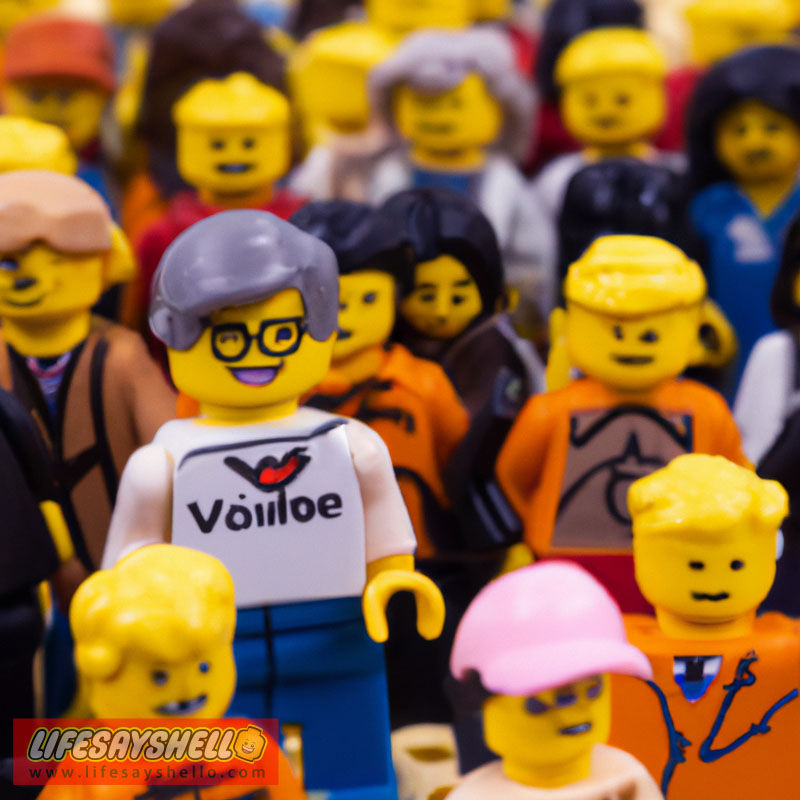The Importance of Celebrating Human Rights Day

Human Rights Day on December 10th commemorates the adoption of the Universal Declaration of Human Rights in 1948. This historic document laid out the basic rights and freedoms that all human beings deserve, regardless of race, gender, nationality or any other status. As we approach the 75th anniversary of the Declaration in 2023, it's worth exploring why this day matters and how we can participate.
What Are Human Rights?
Human rights are the basic standards aimed at securing dignity and equality for all people. They are fundamental rights and freedoms that all of us are entitled to simply by virtue of being human.
The Universal Declaration of Human Rights outlines 30 articles covering civil, political, economic, social and cultural rights that belong to all people. This includes the right to life, liberty and security, freedom from slavery, torture and discrimination, the right to equality before the law, freedom of movement, thought, conscience and religion, the right to work and education, and more.
These rights are universal, meaning they apply to everyone equally, and are considered the minimum standards necessary for people to live with dignity. They form a common global understanding of what rights humans should be able to expect and demand from their societies.
Why Human Rights Day Matters
Human Rights Day serves several important purposes:
It Reminds Us of Our Shared Rights
In our day-to-day lives, it's easy to take many basic human rights for granted. For those of us fortunate to live in democratic societies, we often don't think twice about being able to speak our minds, practice our religion, get an education, or vote for our leaders.
Human Rights Day is a reminder that these freedoms are not a given for all people. It prompts us to reflect on the rights and liberties we enjoy, and empathize with those who still struggle to attain them.
It Draws Attention to Abuses
While human rights ideals have spread, violations still occur far too commonly worldwide. Human Rights Day highlights areas where rights are threatened or denied.
Major human rights issues in the world today include:
- Ongoing violent conflicts like Syria, Yemen, and Myanmar
- Unjust imprisonment of dissidents and protestors calling for reforms
- Lack of free elections and democracy in authoritarian states
- Censorship, harassment, and attacks on journalists and media
- Discrimination and violence against women, minorities, migrants, and LGBTQ+ people
Bringing awareness to hotspots of abuse puts pressure on both governments and public opinion to improve conditions. Discussion of these issues on Human Rights Day gives a voice to the voiceless.
It Unites People in a Common Cause
Human rights issues can often seem complex, overwhelming, or specific to certain regions and contexts. Human Rights Day helps build solidarity by reminding us that certain basic rights apply universally.
People across cultures, nations, faiths, and political systems can unite behind shared goals like ending child labor, torture, and political repression. It brings together human rights defenders working to make a difference worldwide.
It Inspires Action
Talking about human rights is important, but Human Rights Day also aims to motivate action. It inspires people to do their part through activism, volunteering, political participation, and supporting organizations that defend rights and freedoms.
Even small acts like signing a petition, contacting elected officials, attending a vigil, or sharing on social media can add up to real change. The day encourages ordinary citizens to see themselves as part of the human rights movement.
It Educates People on Their Rights
For rights to be meaningful, people must first know what they are entitled to. People living under repressive regimes are often denied this knowledge. Human Rights Day seeks to spread awareness so that all people understand their basic universal rights.
When people are informed, they can better monitor abuses, advocate for their rights, and hold leaders accountable. Education also shows people how to responsibly exercise rights like speech and assembly without infringing on others' rights.
It Pressures Governments
Governments have an obligation under international law and treaties like the UN Declaration to respect and ensure human rights within their jurisdiction. Human Rights Day calls them to task.
It draws the media spotlight onto countries with poor records. It also creates openings for the UN, NGOs, and activists to engage governments and pressure them to implement reforms.
Even nations with good overall records can have blindspots, so the day can spur positive steps like improved policies for marginalized groups.
Key Facts About Human Rights Day
It was created by the United Nations General Assembly in 1950. The date of December 10th commemorates the day in 1948 when the Universal Declaration of Human Rights was adopted.
2022 marks the 75th anniversary of this seminal human rights document. Special events will highlight how the Declaration has progressed over seven decades.
The theme for 2022's Human Rights Day is “Dignity, Freedom and Justice for All.” This calls for action to support the rights in the Declaration to be realized globally.
Participation has expanded to include grassroots activists, NGOs, governments, celebrities and public figures over the years. Major cities worldwide host events and rallies.
The UN High Commission for Human Rights coordinates official UN events and releases annual campaigns tied to specific themes. For example, the "Youth Standing Up for Human Rights" campaign engaged young people leading up to the 50th anniversary in 1998.
While December 10th serves as the formal date, related observances now often take place throughout December and the weeks leading up to it. This allows more people to participate as part of a broader awareness month.
Cities, organizations, and educational institutions often host exhibits, cultural events, lectures, and workshops to celebrate the occasion. Awards recognizing human rights defenders are frequently given out.
To encourage local participation, the UN provides resources and promotional materials like posters, videos, logos and social media toolkits. People can hold their own events using these tools.
Politicians like the UN Secretary General and US President often issue official statements commemorating Human Rights Day and calling for continued progress.
While celebrations focus on the UN Declaration, the day also highlights work done by regional bodies like the European Court of Human Rights and the African Charter on Human and Peoples' Rights.
Human rights activists and organizations in countries with poor records often face additional restrictions around December 10th when trying to observe the occasion.
December 10th was chosen to honor the UN General Assembly's adoption of the Universal Declaration in Paris on that date in 1948, following the atrocities of WWII.
The Declaration was drafted by a UN commission chaired by Eleanor Roosevelt, who played a pivotal role in its creation as a founding document of human rights.




Comments